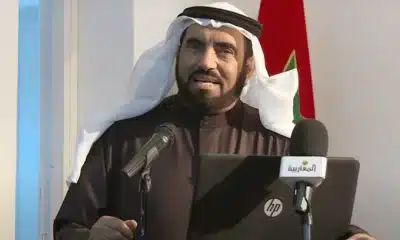Israel has revealed it has reprimanded two top army officers for authorising an artillery attack which hit a UN compound in Gaza last year.
In the attack on 15 January 2009 the compound was set ablaze by white phosphorus shells.
The admission is contained in the Israeli response to the UN’s Goldstone report, which concluded both Israel and Hamas had committed war crimes.
Both officers have retained their ranks, according to reports.
The Israeli army has not specifically said that the rules of engagement were broken over the use of white phosphorus.
During the 22-day conflict last year, media pictures showed incendiary shells raining down on a UN compound.
The officers were named in Israeli media reports as Gaza Division Commander Brig Gen Eyal Eisenberg and Givati Brigade Commander Col Ilan Malka.
“Several artillery shells were fired in violation of the rules of engagement prohibiting use of such artillery near populated areas,” the Israeli response to the Goldstone report says.
The officers were charged with “exceeding their authority” in ordering the use of the weapons in the attack.
An Israeli Defence Force spokesman said that the reprimand would be noted on their records and would be considered if they apply for promotion in future.
Brig Gen Eisenberg is still in command of Israel’s Gaza division, and Col Malka has been moved to the West Bank under the same rank, according to the Reuters news agency.
‘Evidence’
Israeli government spokesman Mark Regev said the military was investigating about 150 allegations. There was enough evidence in 36 cases to pass those claims to military police for criminal investigations.
“In this particular case, it was not referred to criminal investigation, it wasn’t decided that there was evidence of criminal wrongdoing and a reprimand was warranted,” Mr Regev said, referring to the shells fired on the UN compound.
Criminal proceedings have so far been opened in one case, concerning an alleged theft of a credit card from a Palestinian family by an Israeli soldier.
The soldier used the card to withdraw hundreds of dollars, Israeli media reported.
Mr Regev said there would be “serious consequences” for soldiers found guilty of criminal conduct.
‘Hush money’
A Hamas spokesman said the disciplinary action was “further admission of Israel’s guilt” over alleged war crimes.
But he said he did not expect any further action to be taken against military officers.
He said Israel had paid the United Nations $10.5 million (£6.6 million) in damages to repair their compounds, which he called “hush money”.
A UN representative who was in the compound in Gaza city during the attack told the BBC he “expected full accountability from the Israelis”.
Two UN staff and two Palestinians sheltering in the compound were seriously injured, he said.
A doctor at Gaza city’s main hospital told the BBC he treated hundreds of Palestinians for phosphorus burns during the offensive.
UN demands
The BBC’s Paul Wood in Jerusalem says it is the first time Israel has revealed it reprimanded any officer for his actions during the offensive, named Operation Cast Lead by the Israeli military.
Our correspondent says the admission was buried in the document handed to the UN on Friday.
The UN General Assembly has demanded that both Israel and Hamas launch independent investigations into their conduct during the Israeli operation which began in December 2008.
An Israeli official said the submission to the UN was not intended to respond in detail to the allegations and incidents outlined in the Goldstone report, but to explain why the Israeli justice system was “reliable” and “independent”.
The Islamist movement Hamas has denied that its forces deliberately targeted civilians with rockets.
Both sides have until 5 February to respond in detail to the UN General Assembly’s request for independent investigations to be launched.
White phosphorus, which is used to lay smokescreens, is legal for use on open ground but its use in built-up areas where civilians are found is banned under international conventions.























